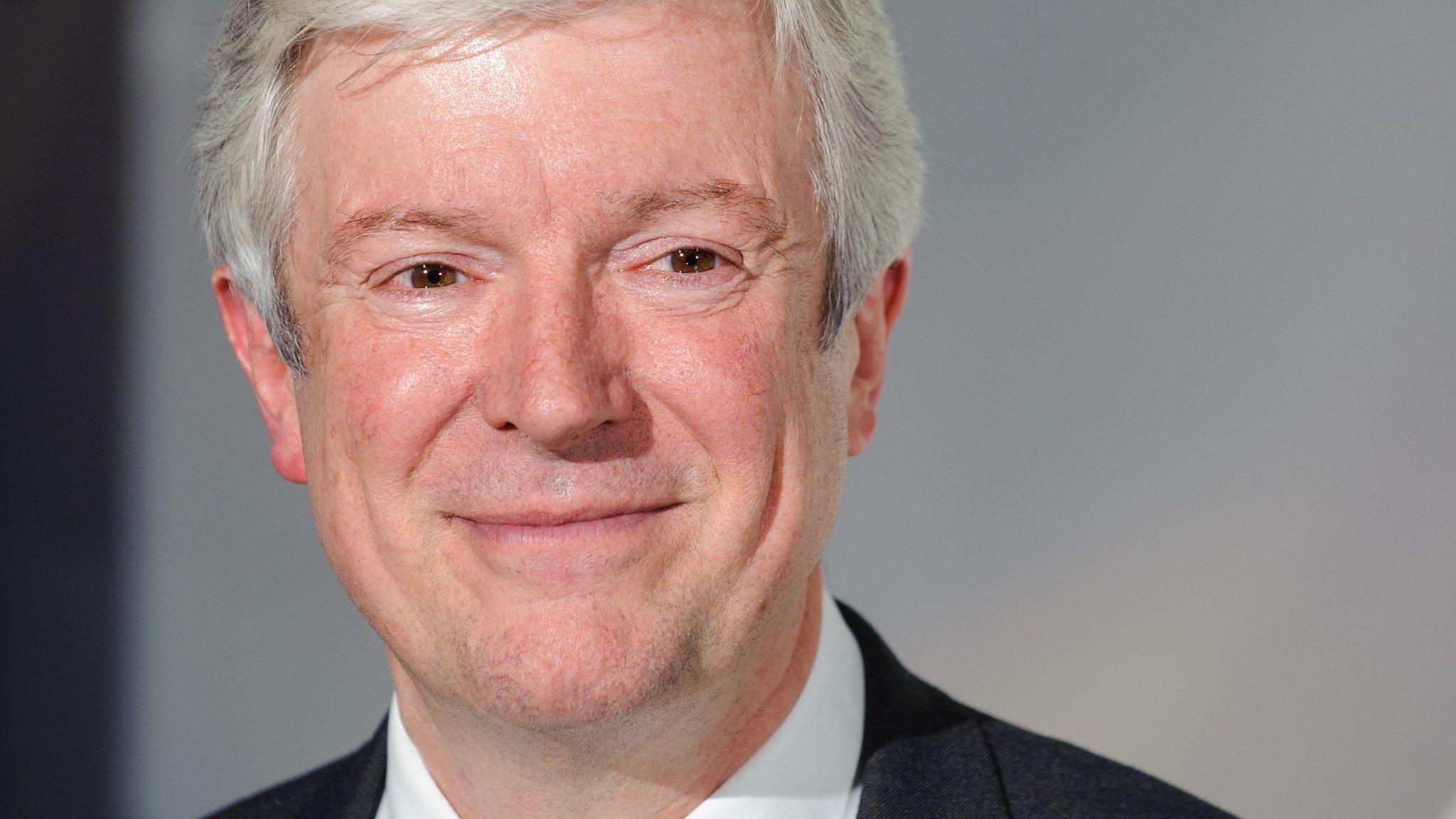BBC director general Tony Hall defends the corporation as it launches annual report
- Published
- comments
Mark Easton reports on Tony Hall's defence of BBC programming
The BBC's director general has launched a robust defence of the corporation's programming amid claims that it has strayed from its public service remit.
Launching the BBC's annual report, Tony Hall said it had a duty to "inform, educate and entertain".
The annual report, external came two days before the government publishes a green paper on the BBC's future.
It will reportedly ask whether the BBC should rethink how many popular entertainment programmes it broadcasts.
BBC One talent show The Voice, which originated in Holland, has been mentioned by critics as an example of a show that has been used to compete for ratings with commercial rivals.
But Lord Hall said: "I believe the BBC should continue to make programmes for everyone. A BBC that doesn't inform, educate and entertain is not the BBC the public know and love.
"The great majority are happy to pay the licence fee. The BBC belongs to this country. The public are our shareholders."
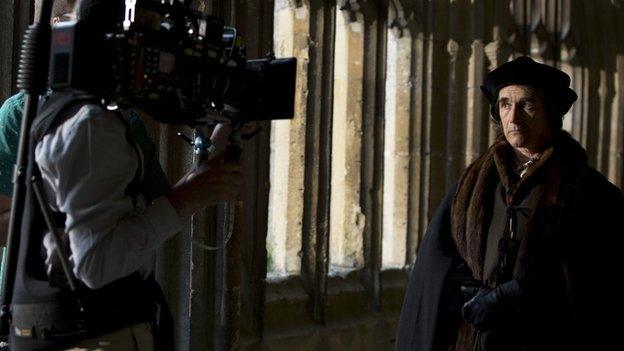
Lord Hall highlighted the success of heavyweight dramas like Wolf Hall
A survey carried out for the Annual Report found 48% of the public supported funding the BBC through the licence fee, compared with 29% for advertising and 20% for subscription.
Star names
The Annual Report revealed that spend on BBC talent - the corporation's star presenters - increased from £194.2m in 2013/14 to £208.4m in 2014/15.
The wage bill for big names, who earn more than £1m a year, rose by £924,000 or 22%.
Although the BBC does not reveal the identity of those biggest-earners, the handful of stars making more than £1m are likely to include Chris Evans, Gary Lineker and Jeremy Clarkson.
Clarkson's departure could have a significant impact on the figures for the coming financial year.
In 2014 the BBC committed itself to spending no more than 16% on talent and the current figure represents 12.2% of spend on content.
'Serving audiences'
Lord Hall pointed to dramas such as Wolf Hall, The Missing and Poldark as examples of BBC successes over the last 12 months.
And he warned against undue interference in programming. "The last time politicians got creative, we ended up with the Millennium Dome," he said.
"So it will be hard to support any proposal that stops us finding the next Strictly, the next Bake Off, or - dare I say it - the next Top Gear."

Analysis: Mark Easton, Home editor
Should the BBC make popular entertainment programmes like Strictly and The Voice? After all, commercial broadcasters are more than capable of producing such shows.
Today, the BBC director general said the BBC's commitment to serve all audiences was "non-negotiable" and the corporation must be true to the principles of its first DG Lord Reith - to inform, to educate and to entertain. Lord Hall is worried that what he calls "narrow commercial voices" are dominating the debate about the future of the BBC. His strategy is to mobilise the BBC's audience which he believes are supportive of the corporation remaining a universal public broadcaster serving all its audiences.
Independent research commissioned by the BBC Trust suggest that the word most closely associated with its mission is "entertain". Expect much more. Auntie is appealing over the heads of its critics in government and the media to the millions who pay the licence fee.

BBC Trust chairman Rona Fairhead added there was "no evidence that the public wants less entertainment".
She said: "The BBC can't be all things to all people, but as a universal public service broadcaster it must strive to serve all audiences."
The 2014/15 annual report also included the following audience figures:
97% of UK adults used BBC services, up from 96% the previous year
But audience appreciation fell for the second year running, down from 82.1% to 80.9%
Every TV channel's weekly reach has dropped. BBC One had a reach of 73%, down from 74.9%
BBC Two was 47.3%, down from 50.3%
BBC Three was 18.4%, down from 20.5%
BBC Four was 13.6%, down from 14%
Meanwhile, the report revealed that the BBC's total severance pay had fallen 30% in a year since a £150,000 cap was introduced.
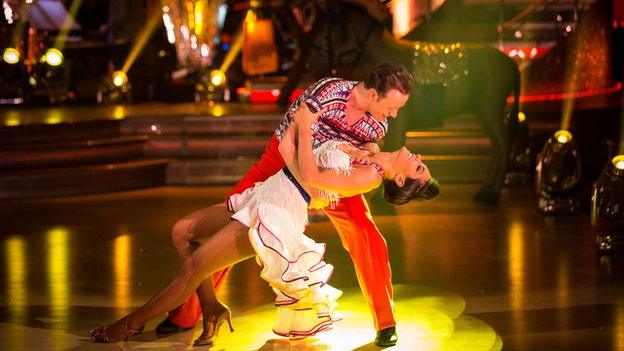
Labour MP Chris Bryant has defended shows like Strictly
The number of bullying and harassment cases reported this year had fallen by 36%, it said.
Speaking about a recent agreement with the government to take on the cost of providing free TV licences for over-75s, Lord Hall said the deal was "not a good process... but that agreement has now been concluded".
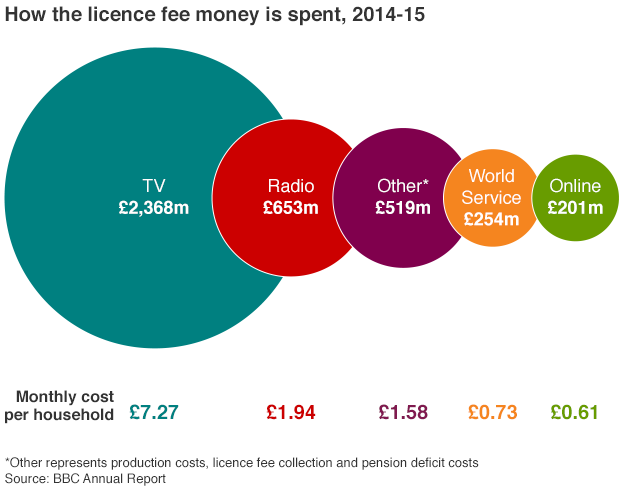
"The debate now moves on to what kind of BBC we want in the future. And I'm much happier starting that debate from a shared agreement around flat cash funding for BBC services, rather than starting off down around three-quarters of a billion pounds."
But the BBC's financial chief, Anne Bulford, said that despite the licence fee funding that has been secured, income would be down in real terms by 10%.
When asked if he considered resigning over the negotiations with the government regarding over-75 licences, Lord Hall said: "I didn't... because I believe in the BBC and fighting for the BBC."
He called for a "proper public debate about the future of the BBC" before the corporation's royal charter is renewed.
Lord Hall said: "There's a clash between two very different views of BBC. There is an alternative view that prefers a much diminished BBC. I don't support this view. Nor does the British public."
The government's green paper is due to be published on Thursday. According to press reports, it is also expected to examine the future of the licence fee, suggest the BBC website could be scaled back and ask whether the BBC is politically impartial.
'Cultural NHS'
Meanwhile, shadow culture secretary Chris Bryant has set out Labour's vision for the future of the BBC in a speech in London.
He said there was "now just 18 months left to save the BBC" following recent government criticism of the corporation. He also pledged to save Strictly Come Dancing and The Voice.
"The BBC is our nation's cultural NHS and the golden thread through it all is that it provides something for everyone," he said.
It comes after Lord Patten, a former Conservative Party and BBC Trust chairman, criticised the government during a Lords' debate on the BBC.
He said: "I wish I could feel confident its future was safe in the hands of the present administration.
"I don't think the prime minister or chancellor want to have as part of their legacy that they began the destruction of this great broadcaster."
- Published12 July 2015
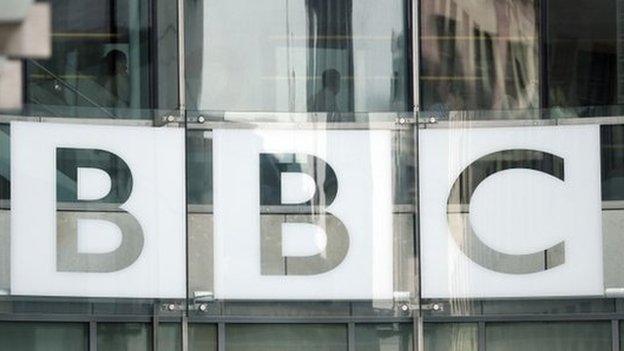
- Published12 July 2015
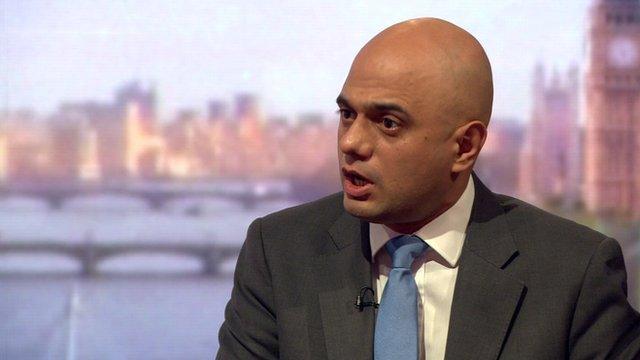
- Published12 July 2015
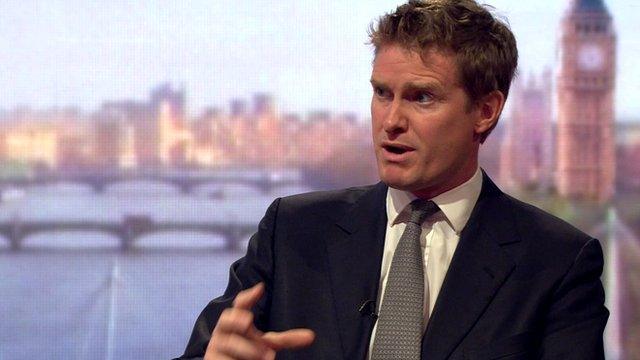
- Published7 July 2015
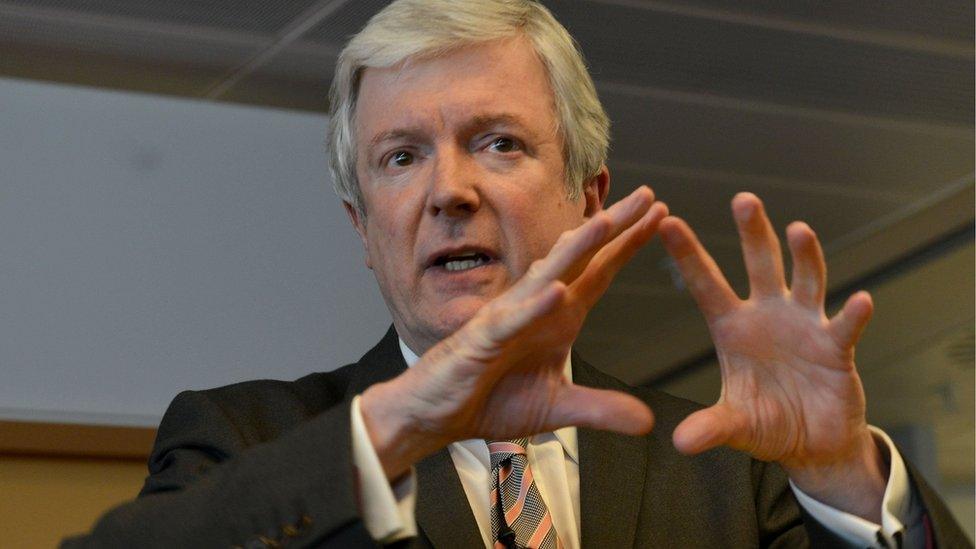
- Published6 July 2015
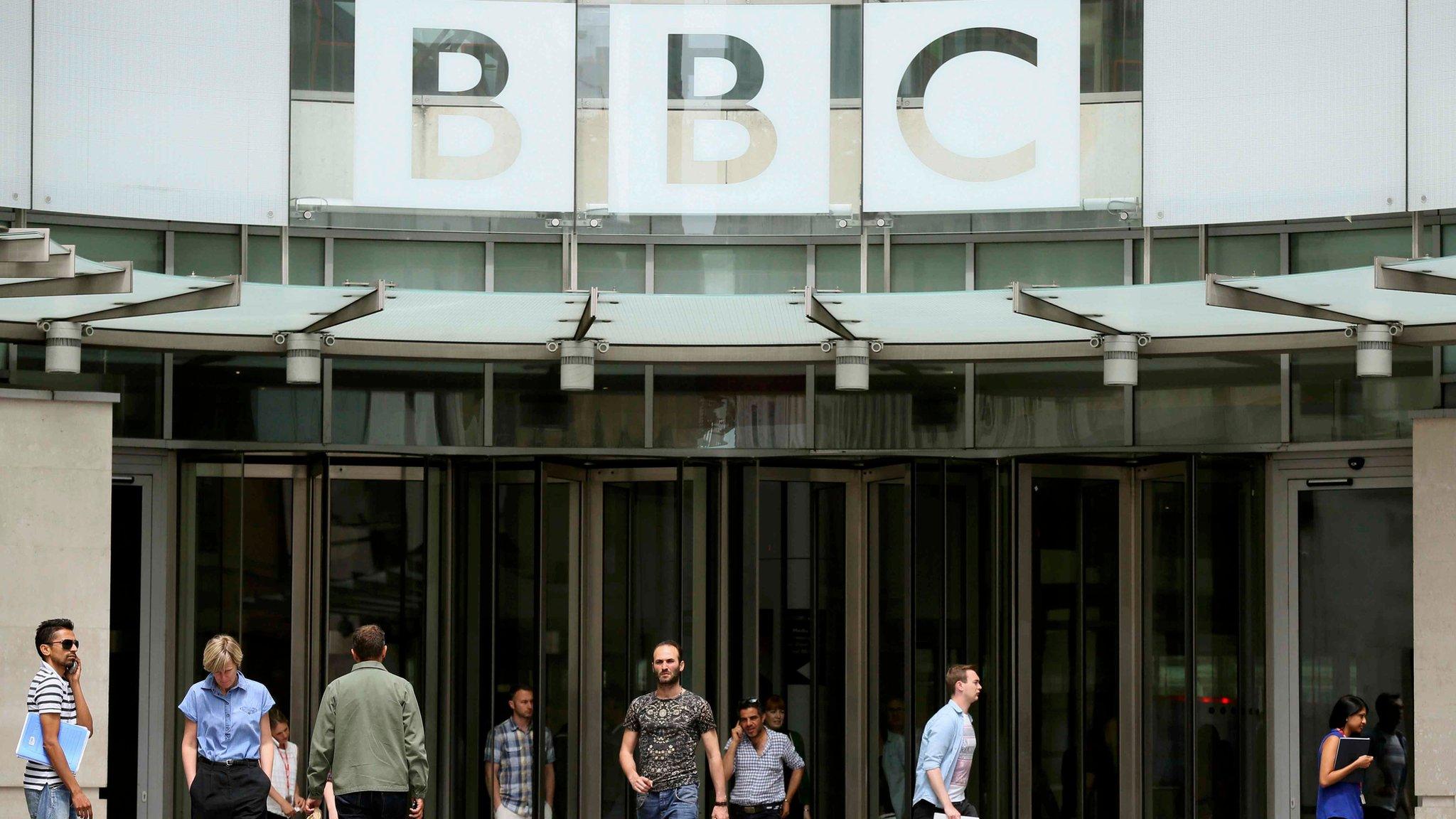
- Published2 July 2015
